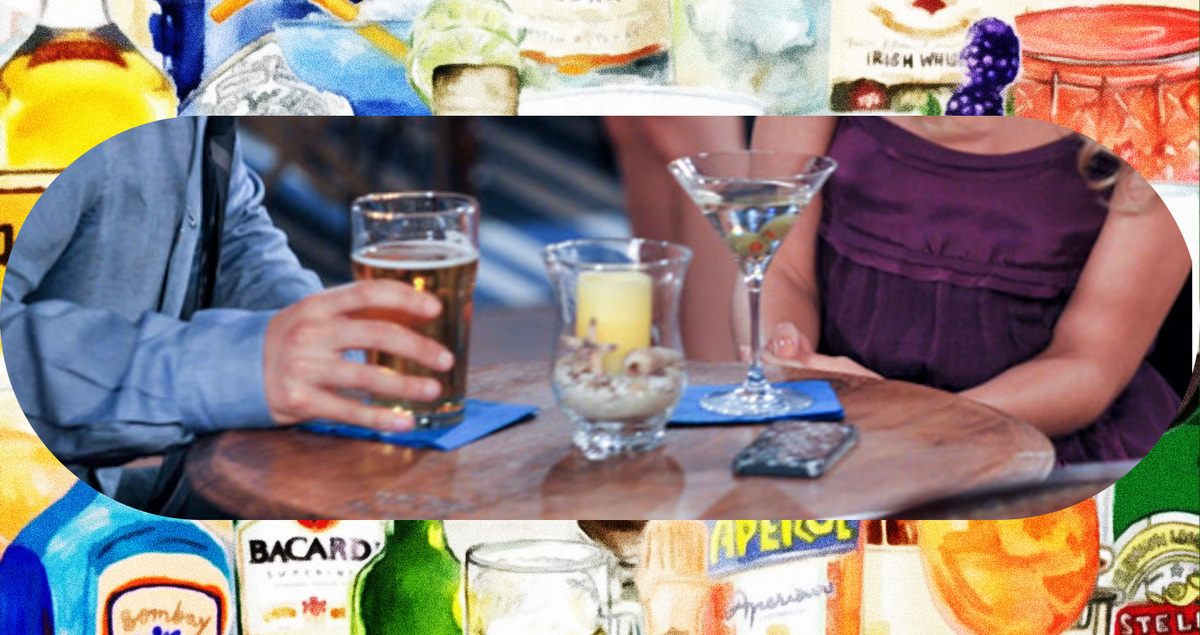
Unpacking Gen Z Drinking Trends During Alcohol Awareness Week
From cost-of-living sobriety to workplace pressures.
As Alcohol Awareness Week (7th-13th July 2025) highlights the widespread effects of alcohol on individuals, families, and communities, this year's theme, 'Understanding Alcohol Harm,' brings into focus the less obvious consequences of alcohol on health. Alcohol Change UK is also drawing attention to work-related alcohol harm, from its use as a reward from employers, to its role as a coping mechanism. The organization aims to create more inclusive workplaces for non-drinkers, as well as to reduce the intertwinement between work and drinking, promoting increased employee motivation and safety.
In aid of this crucial week, let's explore the evolving drinking habits of Gen Z (aged 13-28) as the generation simultaneously reaching legal drinking age, as well as the workplace.
Gen Z's Sobering Trend: Fact or Fiction?

January saw a record 15.5 million people participate in ‘Dry January’, notable as another age group of Gen Z became legally able to drink. Further evidence of a decline in Gen Z alcohol consumption is also seen in the closure of seventeen Rekom nightclubs last year. The CEO cited students' reluctance to go out mid-week and a general drop in alcohol intake as contributing factors. This shift towards sobriety, particularly among students, is further supported by the rise of ‘sober societies’ that favour coffee meet-ups and game nights over traditional bar crawls.
Why the Shift? Exploring Gen Z's Drinking Habits:

The rising cost of living significantly impacts young people, especially students who face increasingly high tuition fees as well as a competitive job market. With less disposable income, alcohol becomes a luxury rather than a necessity, leading to reduced bar patronage and more nights in. Additionally, there's a growing emphasis on phsical and mental health among younger generations, as Gen Z is notably more aware of the ramifications of alcohol. This preference for sobriety, driven by health consciousness and financial shrewdness, is reinforced by prominent sober celebrities like Anne Hathaway, Zendaya, Tom Holland, and Lana del Rey.
The Workplace Influence: A Reversal of the Trend?

Despite these trends, this sober inclination appears to decrease as Gen Z enters the workforce, as is the focus of Alcohol Change UK. With increased access to disposable income and exposure to workplace alcohol pressures, their drinking habits begin to shift. A study by IWSR Bevtrac, surveying over 26,000 individuals across fifteen countries, revealed that 73% of Gen Z individuals aged 21-27 had consumed alcohol in the past six months. This represents a substantial increase from 66% two years prior – the largest rise across any generation. In the US, this jump was even more dramatic, from 46 to 70%.
While Gen Z, that is of legal drinking age, is still slightly less likely to consume alcohol than older generations, it's plausible they may follow similar drinking patterns as they earn more significantly throughout their careers.
Promoting Responsible Drinking:

For those who choose to drink, it is imperative to do so responsibly. Here are some tips for safe drinking and avoiding dependency:
Adhere to UK Low-Risk Drinking Guidelines: Aim for no more than 14 units of alcohol per week. Incorporate Drink-Free Days: Regular alcohol-free days can significantly benefit your health. Monitor Your Intake: Keeping track of your drinking can help you identify any warning signs. Avoid Binge Drinking: This is defined as consuming 8 or more units in a single session for men, and 6 or more for women.











